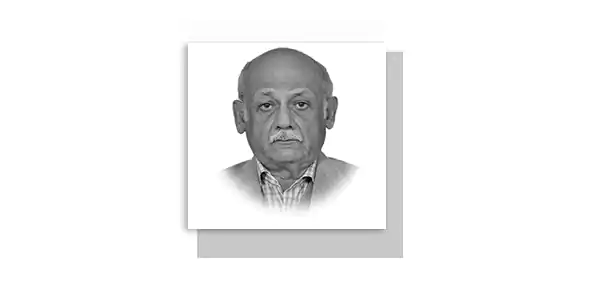FOREIGN policy of Pakistan has undergone many changes and reforms during the last seventy five years but ironically it still leaves a lot to be desired because it has mostly been disastrous for the country and has even proved to be a negative influence on the region of south Asia. Since the birth of the country in 1947 our policy planners have endeavoured to craft a foreign policy that seeks to ‘promote the internationally recognized norms of interstate relations, i.e. respect for sovereignty and territorial integrity of all States, non-interference in the internal affairs of other State; non-aggression and peaceful settlement of disputes. The three basic objectives of our foreign policy are supposed to be national security, territorial integrity and political sovereignty of the country. The foreign policy has always been focused on strategic national security issues and the about ensuring the survival of the state.
The policy failed miserably to ensure the territorial integrity of the country when the country disintegrated in 1971 with the secession of East Pakistan and the surrender of the army in Dhaka. The country’s foreign policy is determined by the country’s core national interests and it should be kept in mind that there are no permanent enemies or permanent friends only permanent national interests. The foreign policy objectives need to be in line with the resources available with the state. Ironically the frequently reformed foreign policy of Pakistan has ignored the basic guiding principles of policy formulation. The foreign policy has always been dominated by stress on physical security with very little overall concern for permanent national interests, diplomacy or the available resources.
Since 1947 the foreign policy has revolved around its neighbours like India Afghanistan and then China in the North East. It has focused on the USA going to the extent of joining defence pacts like SEATO and CETO in 1954 and providing airbase to the Americans in Peshawar to spy on the USSR. Efforts have been made to cozy up to the Muslim world particularly Saudi Arabia and very little efforts have been made to develop trade and friendly relations with European Union states and the UK. Eastern European countries have been totally ignored. The question of Kashmir resulted in the bitter dispute and animosity between India and Pakistan and since 1947 our policy has been focused on wresting control of Kashmir from India and this disastrous policy resulted in operation Gibraltar, Operation Grand Slam and the 1965 war and later on the Kargil misadventure in 1999.
Our western Neighbor Afghanistan was the only country in the world to vote against Pakistan for membership of the UN and even today has not recognized he Durand Line making claims on Pakistan territory and dreaming of a new state of Pakhtunistan. The Pakistan foreign policy for Afghanistan has been rather reactionary just meaning to protect the territorial integrity of the country. After the fall of King Zahir Shah the new ruler of Afghanistan Sardar Daud declared categorically that Pakistan is an enemy state in occupation of Afghan territory. In response After the Soviet invasion of 1979 Pakistan formulated its interventionist Afghan policy.
The policy rested on hosting, training, and arming Afghan Muslim radical groups and mullahs to pit them against anti-Pakistan Afghan nationalists. The objective was to keep Afghanistan chaotic and so unstable that it posed no threat to Pakistan’s integrity. This policy continues to the present day. Pakistan’s interventionist Afghan policy spurred the formation of the anti-Soviet Afghan Mujahideen, followed by the Taliban, most of whom are Pashtuns. The first Taliban regime headed by Mullah Omar during 1996-2001 continued their claims on Pakistan territory and there has been no change in their policy during their second stint in power starting in 2021. The blood thirsty monster of the Pakistan Taliban was created with the active support of some Pakistani agencies to support the Afghan Taliban in their struggle against the NATO forces in Afghanistan. The Afghan Taliban now hosts the Pakistan Taliban, who pose a grave threat to Pakistan’s territorial integrity. Ironically, Pakistan’s policy towards Afghanistan has driven the growth of the Pashtun ethno-nationalist separatism it was intended to destroy.
During the decade of the 1950s and 1960s at the height of the Cold war Pakistan threw its lot with the USA and became a member of military pacts designed to threaten the USSR and stop the progress of communism in Asia. According to the needs of the times this was a shrewd and well calculated policy but it made the USSR an arch enemy siding and supporting India against Pakistan. Pakistan took this decision to modernize and equip it armed forces with modern weapons such as the F-86 fighter jets and American tanks to raise its first armoured division. Since that day Pakistan has received over 60 billon dollars US aid mostly for its defence needs against India.
Policy planners in Pakistan failed to adopt the American ideals of democracy, freedom, liberty and individualism they demanded American dollars but not American political and social ideals. The most positive feature of our foreign policy has been the close and fraternal relations with China in spite of pressures from the USA.
Liberal ideals like free trade, as envisaged by the theory of liberal internationalism, have had no place or reflection in Pakistan’s foreign policy. Consequently, Pakistan’s foreign policy has made little contribution to the welfare and development of the majority of Pakistanis.
—The writer is Professor of History, based in Islamabad.
Email: [email protected]










